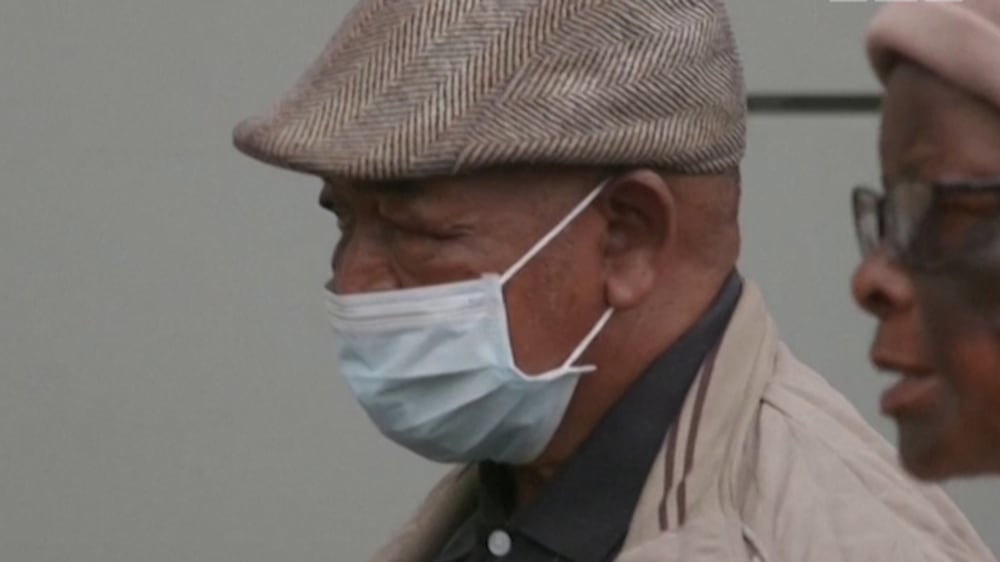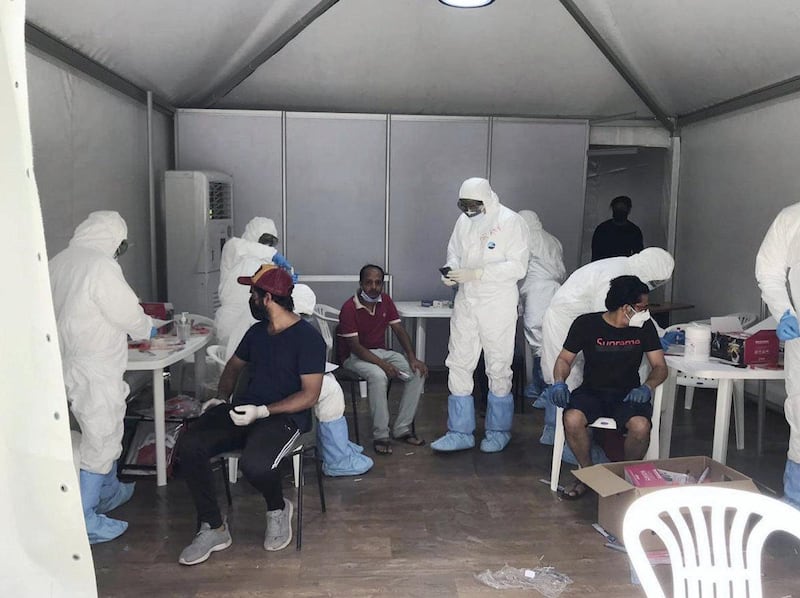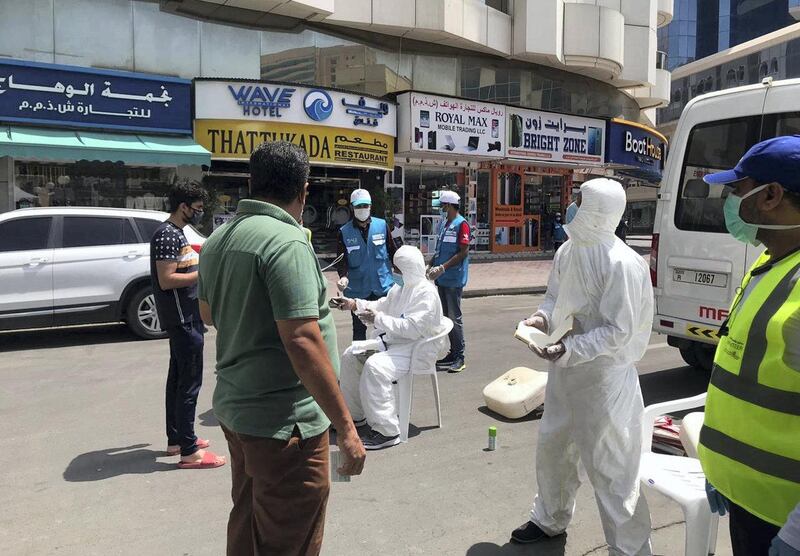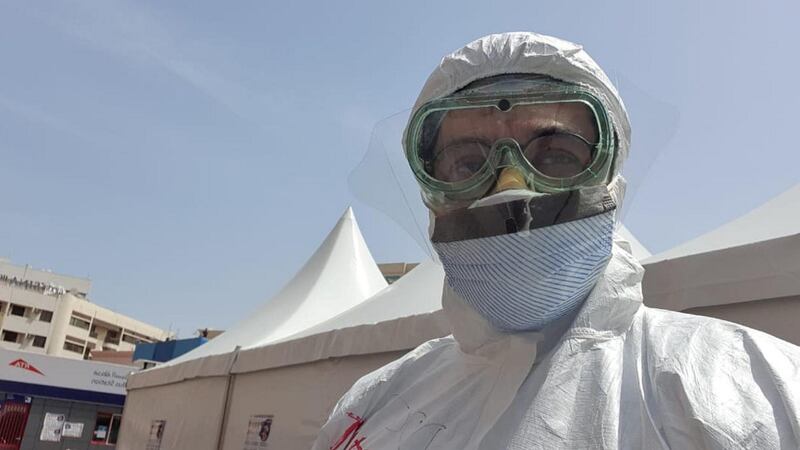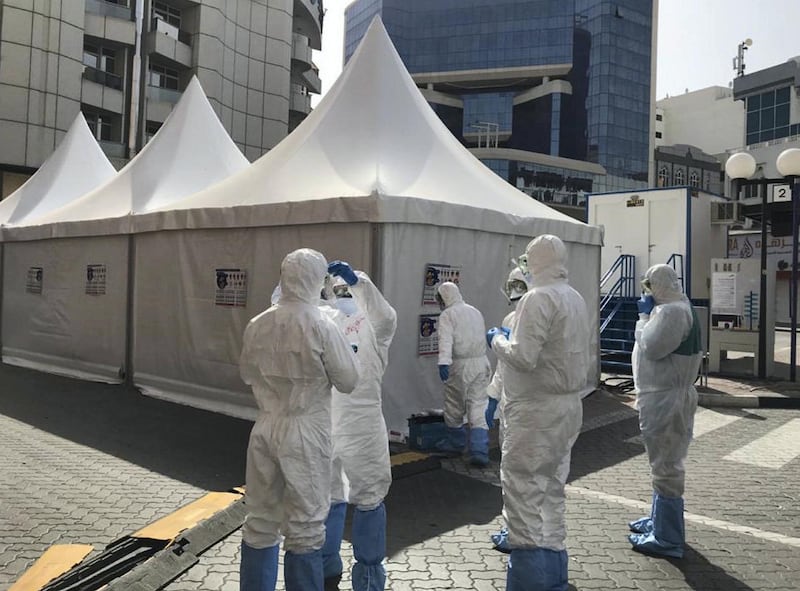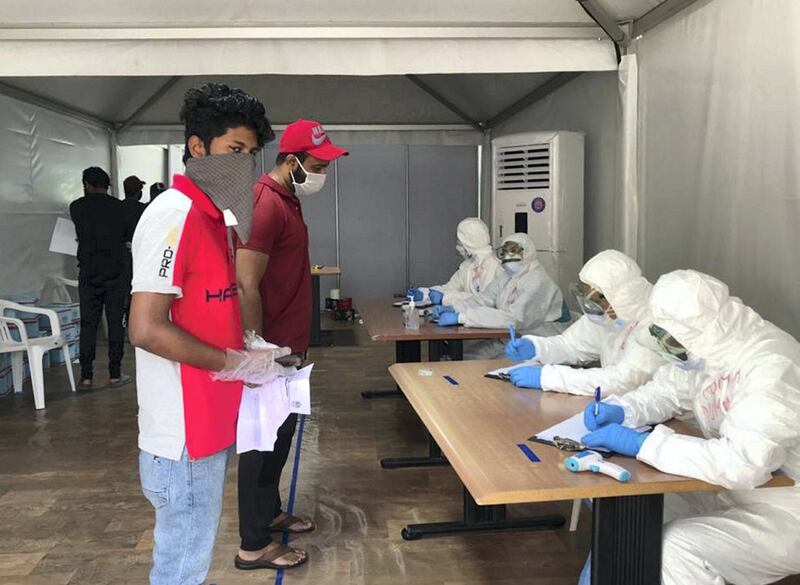Latest: Employers must pay housing allowance to laid off staff, judge warns
A doctor leading a team of medics screening people for Covid-19 in Dubai’s Naif district says extraordinary safety measures are being taken to “break the chain of transmission” in crowded communities.
Dr Rohit Kumar, medical director and head of surgery at Medeor Hospital in Dubai, and his crew have examined hundreds of patients, and segregated them based on assessments, inside a testing station set up in one of the oldest parts of the emirate.
To protect themselves against infection, the group of 13 doctors, nurses and support staff wear two layers of medical gowns, gloves, an N95 mask beneath a surgical mask, protective eye wear and boots.
Dubai sets up disinfection booth for residents in Naif
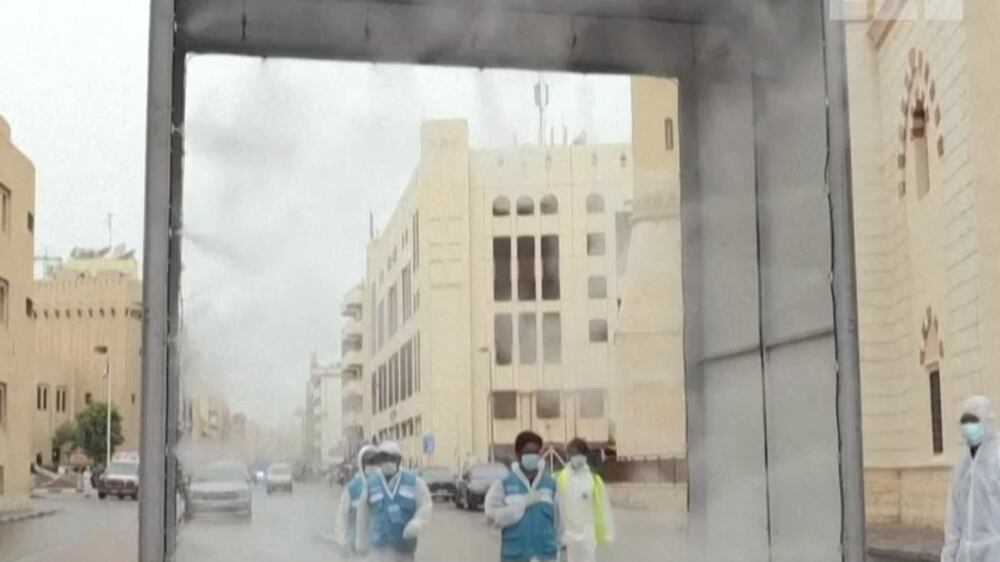
They are not to eat, drink or use the toilet during the six-hour testing stint.
"I told them I can't risk anyone of you. Whatever you want to eat or drink, do that now and use the washroom before we leave [the hospital]," Dr Kumar told The National.
“We work continuously without a break and we do not take anything, no water, not even a drop. We can’t take a chance.”
Wearing the many layers beneath the heat of the midday sun made the experience all the more taxing.
“It was pretty hot and with the PPE (personal protective equipment) we were sweating like crazy but I had explained to my team that we can do the same work in 10 hours or we can do it in a shorter frame so exposure is minimum.”
Hundreds of residents are being screened and tested for coronavirus as part of an intensive drive across congested areas of the country.
Naif is at the mouth of Al Ras neighbourhood, which has been barricaded off to visitors for two weeks to prevent the spread of Covid-19.
Inside a Covid-19 testing tent in Dubai’s Naif area
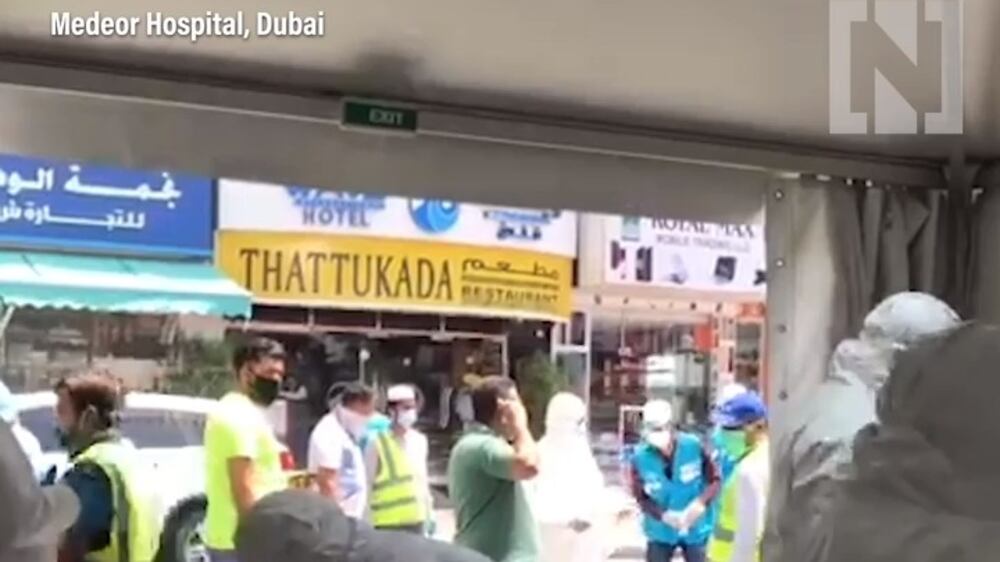
In Naif too, residents of some buildings have been asked to self-isolate after coming into contact with people who tested positive for the virus.
Testing began the doorsteps of buildings last Thursday in both Naif and Al Ras and resumed on Tuesday as the country ramped up measures to combat the pandemic.
Police, volunteers, local and federal health authorities and private healthcare providers have all worked together to organise the testing.
Maintaining distance between patients and frequency using sanitisers have been a crucial part of preventing an increase in cases.
“Distancing is very important and even the Emirates identity card has to be sterilised,” said Dr Kumar.
“Every time an Emirates identity is handled it is cleaned with sanitiser and, after every examination of a patient, we sanitise our gloves so we don’t transfer [the virus] from one patient to the other.
“We have to consider that if someone is positive and they gives us their identity card, our gloves get positive and so, when we take the second Emirates ID, [the virus] goes into the next person,” he said.
“We don’t want to do that. We want to break the cycle by following safety and hygiene.”
Thanks to the commitment and collaboration of Naif residents, health checks by authorities are gaining momentum, moving faster towards ensuring the safety and wellbeing of the community. pic.twitter.com/bthk08EtsV
— Dubai Media Office (@DXBMediaOffice) April 8, 2020
Inside the tent in Naif, volunteers record the temperature of each resident, documenting their Emirates ID number, name and nationality.
The residents are then sent to the doctor for examination.
“I check for any history of contact with a confirmed case, look for breathlessness or a cough, check their lungs and for fever,” Dr Kumar said.
As part of triage in the makeshift tent, the doctor assigned red, yellow and green spaces to demarcate the degree of urgency and treatment of patients.
“We created three zones, the red is hospitalisation, yellow needs to be screened so we do a PCR test ]polymerase chain reaction] that is a swab test of the nose and mouth,” he said.
“Yellow is doubtful, symptomatic but stable. Once the results come we will follow up with these patients. Green is asymptomatic and no risk so we send them home.”
He said a majority, about 90 per cent, had fever and cough and some reported breathing problems.
“Some have [concerns] that their room partner has tested positive,” he said.
In areas with a high population of workers, about 15 to 20 often live in one flat to save on rent.
The doctors counsel the patients, explain the treatment and why separation in a hospital is required.
“Sick patients were sent to hospital because they were symptomatic or had been in touch with people who were positive,” Dr Kumar said.
“Those who are suspected and require quarantine were taken straight by police to a hotel."
Over two days of screening on Tuesday and Wednesday about 520 residents were moved to a hotel, Dr Kumar said.
"This is a very good thing the government is doing.
"They are not waiting for the result to come but taking them out even if they are suspected to have corona.
“If the result comes negative they can go back home but if the result is positive they are already out,” he said.
Like medical staff on the front lines across the country, the medics will return for testing to the area.
“You have to be strong from inside. We are trained for this,” Dr Kumar said.
“I picked my team carefully and they are all briefed on what to expect. We have to break the cycle.”
The first 100 days of the virus
